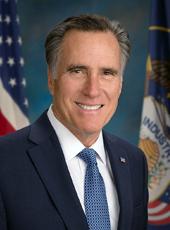FOR IMMEDIATE RELEASE
CONTACT: Kevin Madden (857) 288-6390
Governor Romney's Initiatives To Restrain Government Spending:
Today, In New Hampshire, Governor Mitt Romney Outlined Several Initiatives Which Will Guide His Efforts To Restrain Government Spending In Washington. Governor Romney believes that the American people are over-taxed and government is over-fed. With a record of strong fiscal discipline, Governor Romney will take action to stop overspending.
- Governor Romney Will Lead An Effort To Review And Reevaluate All Federal Spending Programs. His administration will undertake an exhaustive review of each individual federal program with the goal to eliminate and consolidate programs that are no longer useful or are bureaucratic and unwieldy. Federal spending programs do not have a right to immortality, and should not enjoy automatic increases year after year.
- Governor Romney Will Veto Appropriations Bills That Exceed Spending Targets. He will veto annual appropriations (with the exception of defense) that grow spending at a rate greater than inflation minus one percent (CPI-1%). This should be considered the minimum amount of spending reductions. If, for example, inflation is running at 3%, then the growth of discretionary spending should grow no more than 2%, or Governor Romney will veto the appropriations. Additional one-time spending for natural disasters and other catastrophic situations will be considered an exception.
- Governor Romney Believes The President Needs The Line-Item Veto Power. As Governor, he had line-item authority, and often used it to trim or eliminate individual appropriations. Giving the President this power would allow us to make tremendous strides in eliminating earmarks and cutting inefficient programs.
FAST FACTS: Governor Romney's Record Of Fiscal Discipline:
Governor Romney Has A Strong Record Of Fiscal Discipline. Without raising taxes or increasing debt, Governor Romney closed a $3 billion budget deficit his first year in office with a heavily Democrat legislature. Each year, Governor Romney filed a balanced budget without raising taxes. By eliminating waste, streamlining government, and enacting comprehensive economic reforms to help spur growth, Governor Romney helped the state achieve a surplus totaling nearly $1 billion in 2005.
- In The Four Budgets He Signed Into Law, Governor Romney Used The Line-Item Veto Or Program Reduction Power In An Attempt To Cut Spending By Nearly $1 Billion. (Office Of Governor Mitt Romney, "Romney Signs No New Tax Budget In Time For New Fiscal Year," Press Release, 6/30/2003; Office Of Governor Mitt Romney, "Governor Mitt Romney Signs $22.402B Fiscal Year 2005 'No New Tax' Budget," Press Release, 6/25/2004; Office Of Governor Mitt Romney, "Governor Mitt Romney Signs Into Law $23.8 Billion Budget For Fiscal Year '06," Press Release, 6/30/2005; Office Of Governor Mitt Romney, "Governor Mitt Romney Signs $25.2 Billion Fiscal Year 2007 State Budget," Press Release, 7/8/2006)
- By 2006, Spending In The Governor's Office Had Dropped From $5.6 Million In 2002 To $4.6 Million. "Spending in the Governor's Office has dropped from $5.6 million in FY02 to $4.6 million in FY06. Spending is anticipated to drop again in the current fiscal year." (Office Of The Governor, "Romney Transfers Funds From Governor's Office To Pay Military Benefit," Press Release, 11/3/06)
Mitt Romney, Romney Campaign Press Release - Policy Briefing: Restraining Government Spending Online by Gerhard Peters and John T. Woolley, The American Presidency Project https://www.presidency.ucsb.edu/node/296858

